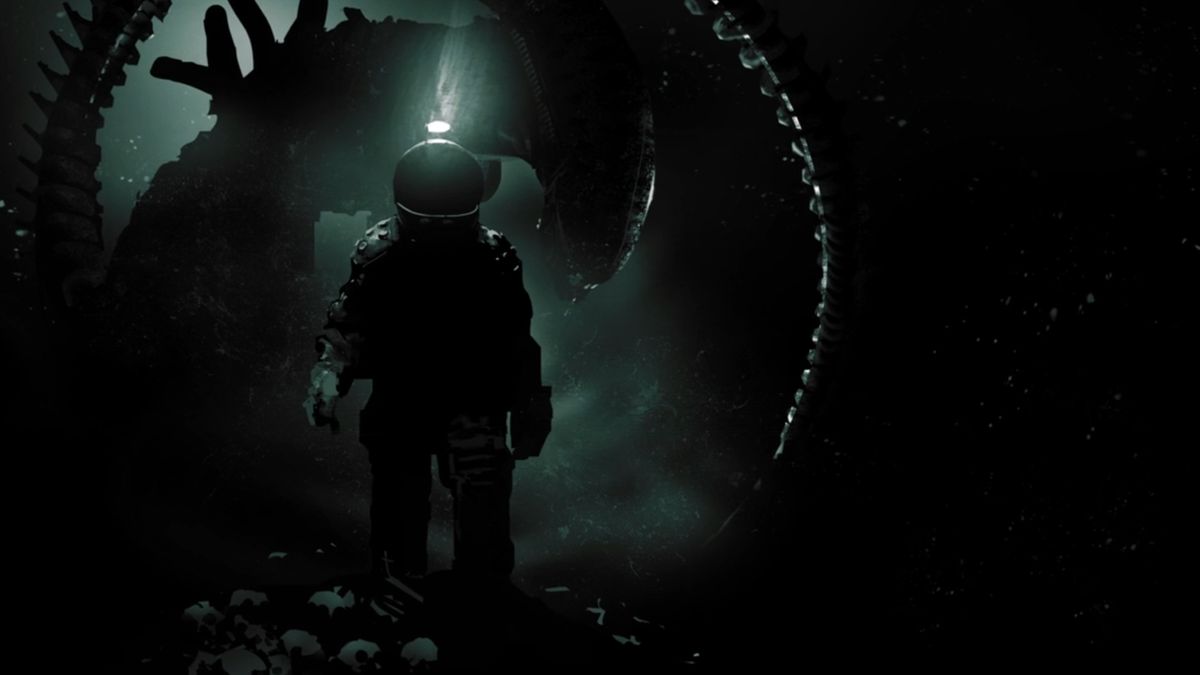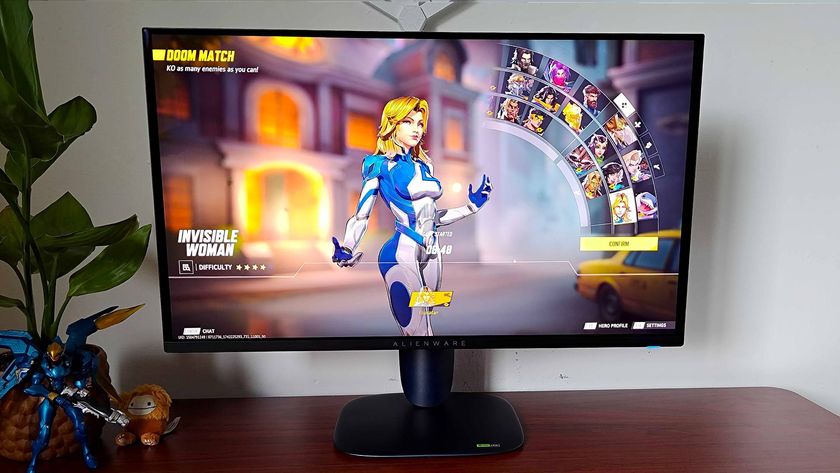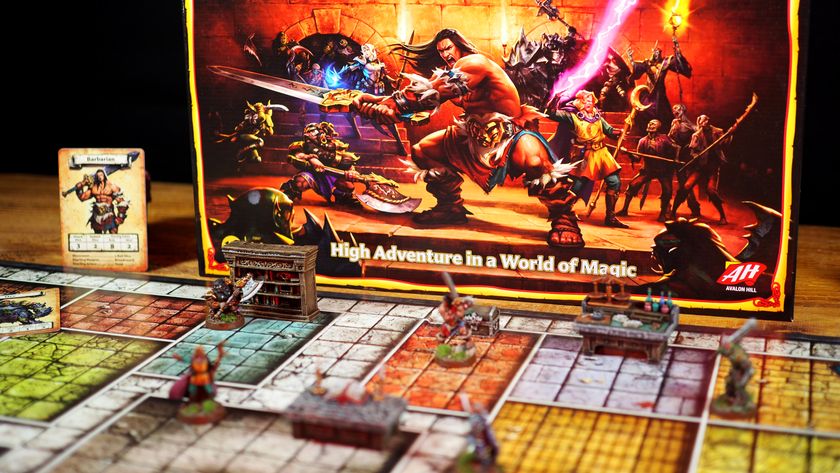12DOVE Verdict
Alien: The Roleplaying Game is a fantastic TTRPG that has the potential to transcend the franchise's limitations and deliver a unique, terrifying spin on science fiction role-playing.
Pros
- +
True to its inspiration
- +
'Stress dice' are great additions
- +
Superb worldbuilding
- +
'Cinematic mode' is smart and authentic
Cons
- -
Can be tricky to run
- -
Don't expect to live long
Why you can trust 12DOVE
As you might expect for such an iconic franchise, Alien has spawned a lot of games. But while there are plenty of board and video game versions, role-playing has fared less well. This is perhaps because of the awkward limitations imposed by the tight focus of the series, at odds with the open-ended nature of the best tabletop RPGs. That might be about to change thanks to Alien: The Roleplaying Game which builds on its namesake to create dark, futuristic body horror.
What is it, and how does it work?
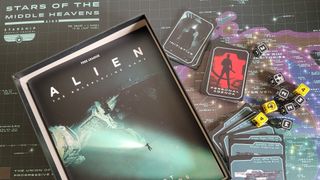
- Game type: Horror tabletop RPG
- Players: 2 - 6
- Complexity: Hard
- Lasts: 120+ mins
- Ages: 14+
- Price: $49.99 / £39.99
- Play if you enjoy: Traveller, Vaesen
As the name suggests, this is a role-playing game set within the universe of the Alien franchise. So think Dungeons and Dragons books, but for sci-fi horror.
You can get into it through two products. First is the boxed Starter Set which contains the essential rules framework, a scenario, some dice, reference cards, pre-generated characters and floor plans. The second is the Core Rules book, a hardback with the full game rules, the entire campaign setting, and a short starter scenario.
The one that's right for you depends on how you’re planning to play. Alien is a little different from the kind of campaign-based RPGs you might be familiar with. While you can play in that style, for which you’ll need the Core Rules, this is a horror game in which characters are expected to die sudden, messy deaths. To facilitate this, Alien: The Roleplaying Game has a second method of play - 'cinematic mode' - in which players get pre-generated characters with conflicting motivations, and play through a single, high lethality scenario. That’s what the boxed Starter Set supports.
Roll a one on the stress dice and you’ll experience a deleterious panic effect
Both use the Year Zero Engine, common to a lot of titles from the same publisher (Free League). It’s a fast, simple ruleset based on rolling a handful of standard six-sided dice and looking for sixes. If you get one, you succeed in the task you’re attempting. If you get more than one, then you succeed particularly well. In combat, those extra sixes can be translated to things like extra damage or grappling an opponent. It’s easy to learn and covers the bases well, although a limited skill roster can leave you in situations where it’s not clear what skills might apply.
However, Alien: The Roleplaying Game adds a horror twist to this framework through the concept of stress dice. As characters witness or experience terrible things, their stress level rises. When a stressed character takes a skill check, they roll additional dice equal to their stress level. Sixes still count as successes, representing the extra edge that terror can provide. But roll a one on the stress dice and you’ll experience a deleterious panic effect based on your stress level that can range from dropping items to balling up on the floor in a catatonic state.
Is it any good?
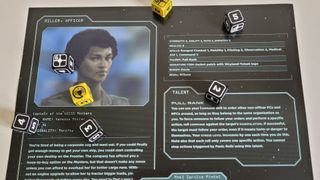
The cinematic mode of play is outstanding in Alien: The Roleplaying Game. Knowing beforehand that characters can and will die frees both designers and players to make full use of the horror elements without having to make artificial concessions to campaign continuity. Other horror games, such as Dread, have done this in the past, but Alien pushes the boundaries, with the pre-generated characters’ conflicting agendas exploding to create dynamic, thrilling play experiences that mimic the paranoia and claustrophobia of the movies.
Against that, you have the problem of familiarity. Most players will have seen those movies, and are going to know that when someone begins to gag and thrash it’s an omen of a parasitic alien birth. This is by far the biggest problem the game has, and it strives to work against it. The included scenario in the Starter Set, Chariot of the Gods, highlights that there are plenty of routes for an imaginative designer to scare the players, even within the confines of the franchise. You can see this in other published material, too, which leans into providing human opposition alongside xenomorphs. But there’s still an uphill struggle to supply shocks based on such well-worn material.
The risk of going into panic remorselessly cranks up the tension on every roll
This is where the campaign mode comes into its own. The Core book devotes a lot of space to, erm, space, in the sense of known systems and planets the players can jet around. It devotes chapters to spaceship combat, known star systems, and to the big power players of Alien’s dystopic future. It is, in other words, trying to be a fully-fledged sci-fi role-playing game. This is a hard ask, given that the source material has a focus on drooling extra-terrestrial monsters over world-building, but it tries valiantly nevertheless.
The result is perhaps reminiscent of early role-playing classic Traveller, in which the players meandered the stars looking for employment and exploration, over the kind of gung-ho action we tend to expect of role-playing games. It’s not ideal, but it works rather better than the narrow focus of the franchise might suggest. Indeed, the book diversifies that into three focal points: space truckers, colonial marines, and colonists. And of course, when you tire of dealing with human antagonists and human evil, there are plenty of drooling extra-terrestrial monsters to throw at the players instead.

Both modes of play are ably supported by the Year Zero Engine which works better here than it has in previous Free League titles. Its limited scope helps keep the action fast and smooth so that players can focus on the action and the fear instead of rulebook referencing. It meshes well with the handy-wavy nature of technology in the Alien universe as well, meaning it can get away with something as vague as “comtech” for a catch-all technology skill. The ones and sixes rule is leveraged in various clever ways too, such as essential supplies like water, air, and ammo dropping on rolls of one, avoiding tiresome bookkeeping and escalating tension at the same time.
Then there’s the addition of stress dice, which is simply brilliant. Offering both carrot and stick, it helps players lean into stressful situations and roll with the punches, advancing the narrative. And the risk of going into panic remorselessly cranks up the tension on every roll. To get rid of stress, you need to rest in a safe environment, something that almost never happens in cinematic mode, so stress is a one-way rollercoaster to hell on which trying to do something as simple as move quietly can leave your character a quivering wreck.
To make all this work, however, you will need a talented GM. Here that stands for “Game Mother” in honour of the computer from the first film in the franchise, a title that may make players squirm. The GM will need to handle the escalating ramp of threat and stress just right to engage and shock the players. They’ll need to flesh out the bare-bones descriptions of the published scenarios and understand when to use the scripted events for maximum impact. They’ll need to track the agendas and role-play for a huge range of non-player characters, often in one scenario. There are tips on all this in the core book, but it’s still a hard ask for a neophyte.
Overall - should you buy Alien: The Roleplaying Game?
If you’ve any interest in the Alien franchise as a whole, this is worth a look. Even if you never intend to play, fans will still be engaged by the tidbits of worldbuilding in the core book and the great art that supports it. And then you might be tempted to play, and that’s all to the good because you’ll likely have a great time with it... providing the GM is up to the job.
Matt is a freelance writer specialising in board games and tabletop. With over a decade of reviews under his belt, he has racked up credits including IGN, Dicebreaker, T3, and The Guardian.
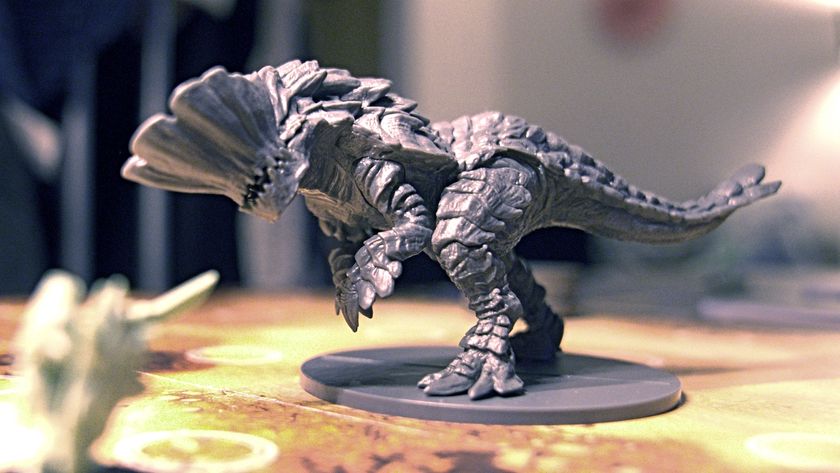
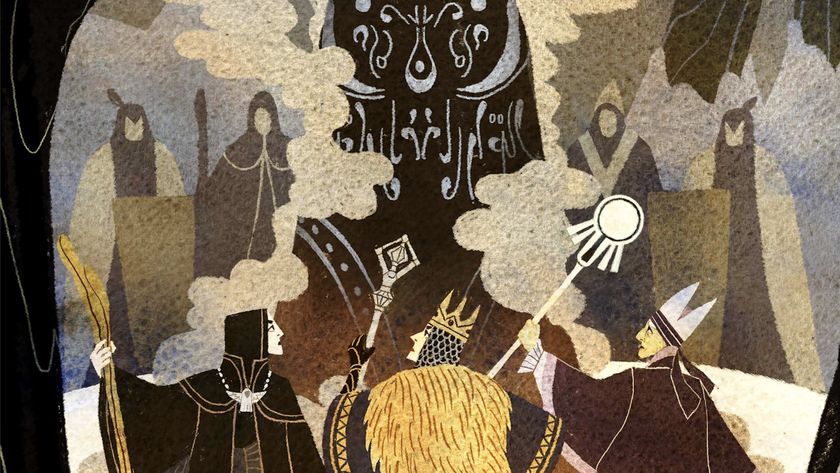
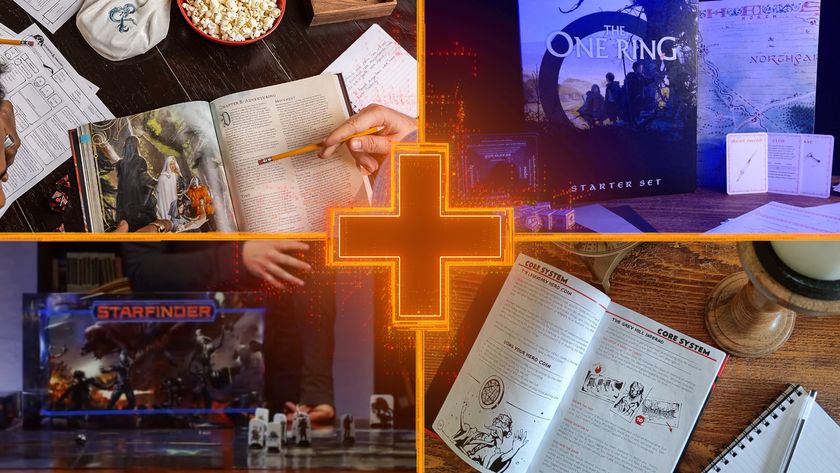
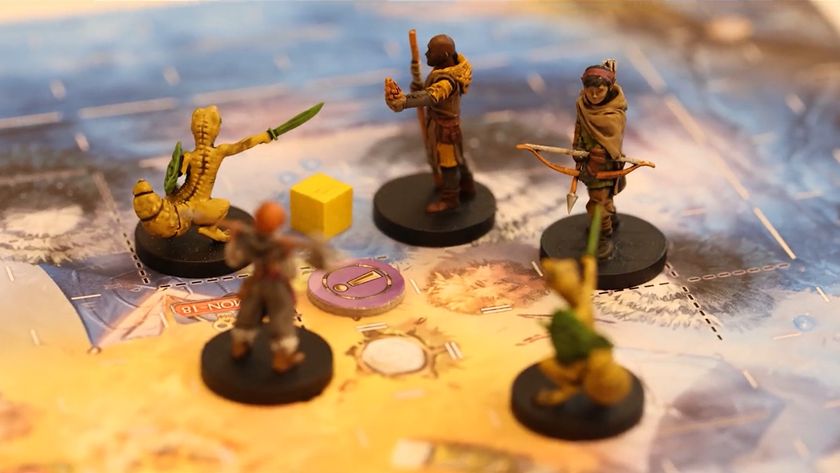
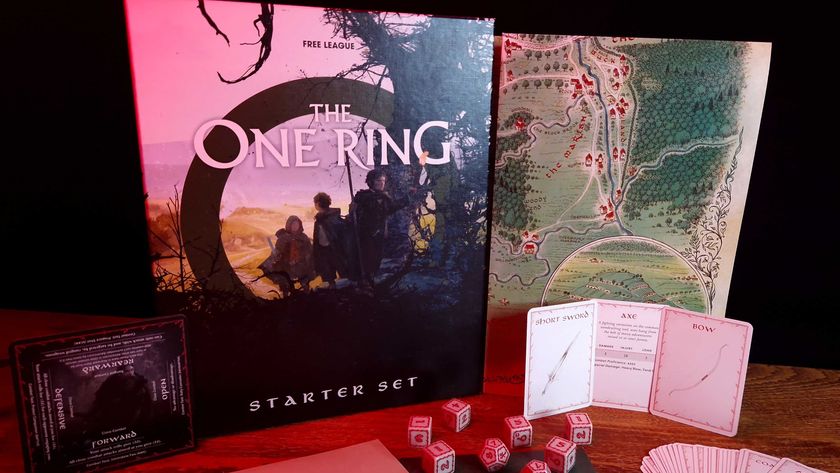
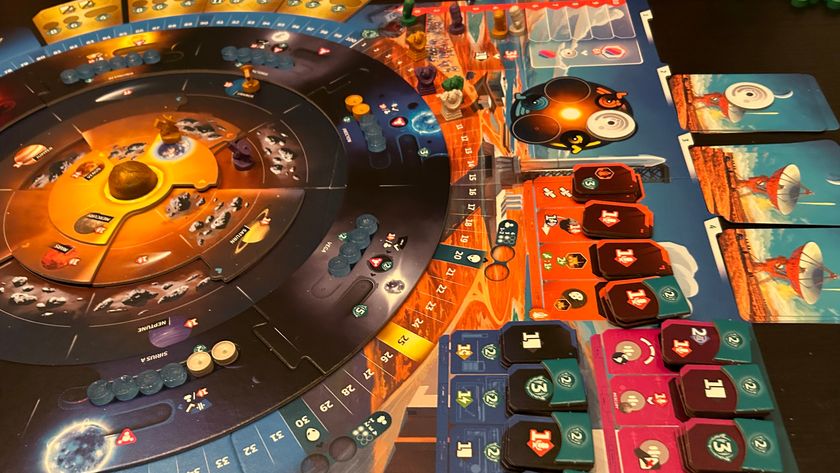
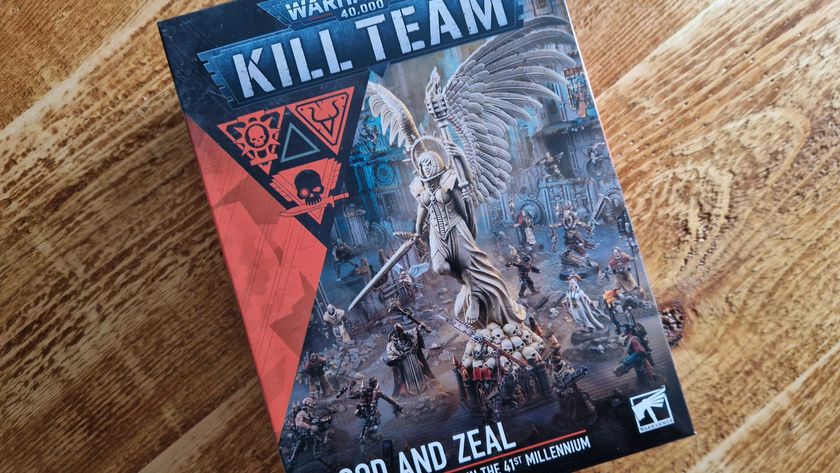



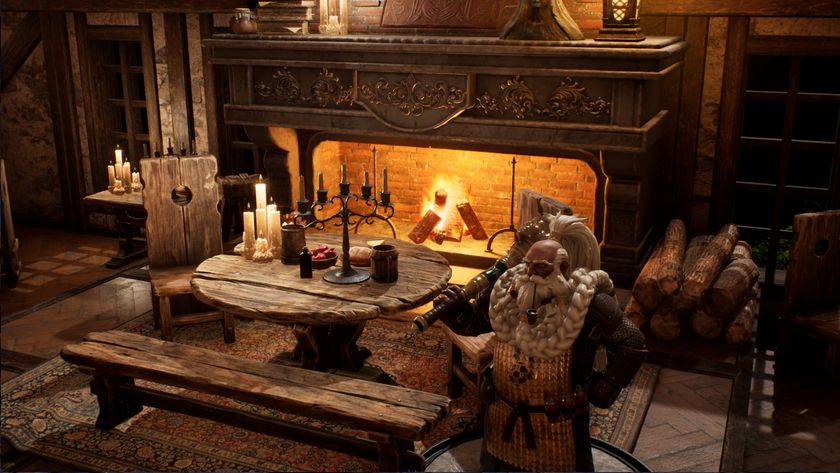




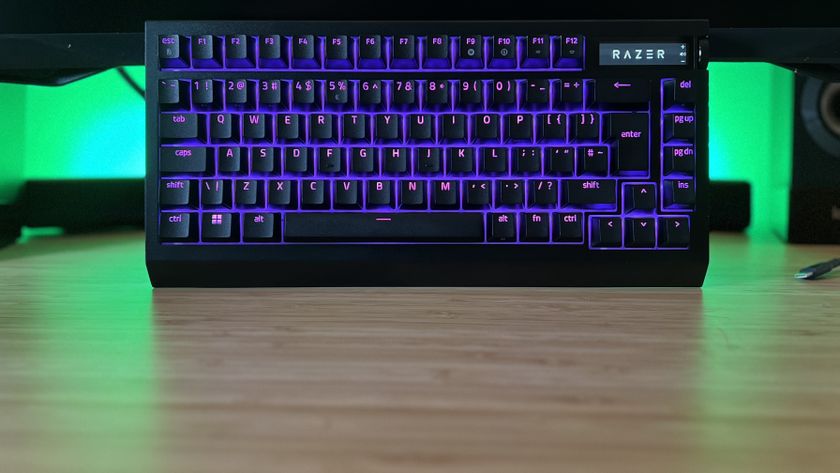

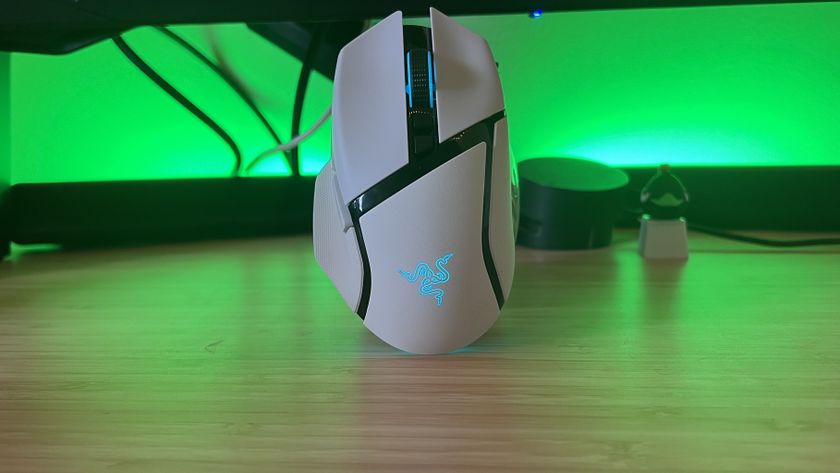
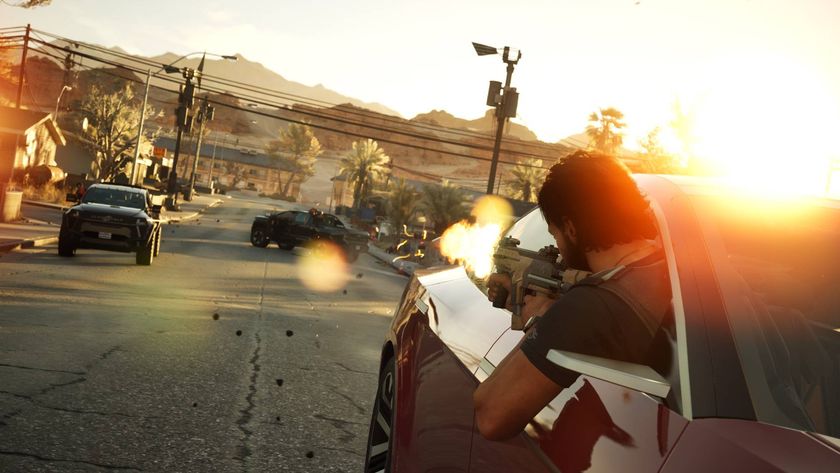
GTA veteran says the games industry needs to "get smarter" about what people actually want: "There are so many games, and I think we're starting to feel the effects"
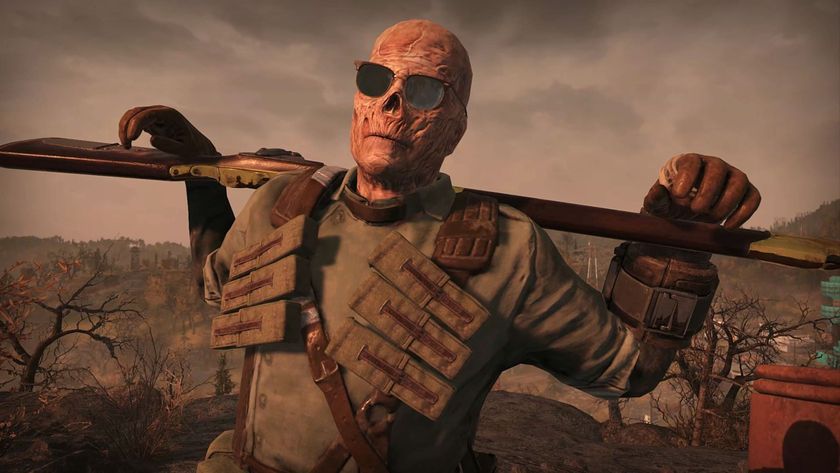
Fallout 76's art director "had to fight really hard" so Bethesda would make the MMO's map bigger than Skyrim's

Don't expect Minecraft to go free-to-play anytime soon, as Mojang says "It doesn't really work with the way we built it"
